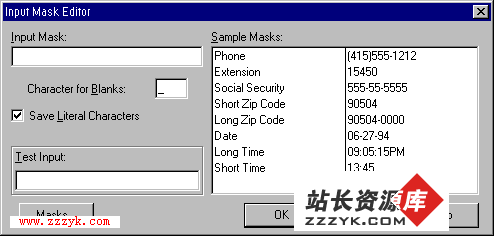龟速的malloc和神速的FastMM
由于在Delphi项目中,要频繁创建和释放大量小对象,因此担心有效率问题,于是打于GetMem.inc看看,发现FastMM对于小块内存作了很多工作,它预置了一组不同大小的内存池,当要创建一块内存时,FastMM找到大小最相近的内存池分配之,内存释放后回收到池中。这样的做法虽有小量内存浪费,但效率却是大大提高。
我决定做一个测试,看看效率研究如何:
const
cSize: Integer = 100;
cNum: Integer = 10000;
var
N, I: Integer;
P: array [0..9999] of Pointer;
Fre: Int64;
Count1, Count2: Int64;
Time: Double;
begin
QueryPerformanceFrequency(Fre);
QueryPerformanceCounter(Count1);
for I := 0 to 1000 - 1 do
begin
for N := 0 to cNum - 1 do
GetMem(P[N], cSize);
for N := 0 to cNum - 1 do
FreeMem(P[N]);
end;
QueryPerformanceCounter(Count2);
Time := (Count2 - Count1) / Fre;
Writeln(Format('Delphi2007 Release: %f', [Time]));
end.
上面例子中,循环1000次,每次循环分别创建和释放10000个100字节的内存块,运行结果如下:
Delphi2007 Release: 0.14
结果非常好,这下我可以尽情使用小对象来替换记录的工作了。
我想起C++的Malloc,不知其效率如何,于是我又将Delphi的测试代码转换成C++,代码如下:
LARGE_INTEGER fre;
LARGE_INTEGER count1, count2;
double time;
QueryPerformanceFrequency(&fre);
const int cSize = 100;
const int cNum = 10000;
void* p[cNum];
QueryPerformanceCounter(&count1);
for (int i = 0; i < 1000; ++i)
{
for (int n = 0; n < cNum; ++n)
p[n] = malloc(cSize);
for (int n = 0; n < cNum; ++n)
free(p[n]);
}
QueryPerformanceCounter(&count2);
time = (count2.QuadPart - count1.QuadPart) / (double)fre.QuadPart;
printf("VC2008 Release: %f\n", time);
运行结果使我震惊,这真是龟速的malloc:
VC2008 Release: 3.854
看来malloc并没有对小内存作任何优化,所以在C++中要大量使用动态对象,是必须要小心的,否则很容易引起性能问题。找了一些替换的内存管理器,始终没有办法达到FastMM的水平,最快的也只是其一半的速度。
最后我用自己实现的一个受限的内存管理器测试,该管理器只能创建固定大小的内存块,也是用池的方式缓存内存块,代码如下:
LARGE_INTEGER fre;
LARGE_INTEGER count1, count2;
double time;
QueryPerformanceFrequency(&fre);
const int cSize = 100;
const int cNum = 10000;
void* p[cNum];
FixedAlloc myAlloc(cSize);
QueryPerformanceCounter(&count1);
for (int i = 0; i < 1000; ++i)
{
for (int n = 0; n < cNum; ++n)
{
//p[n] = malloc(cSize);
p[n] = myAlloc.Alloc();
}
for (int n = 0; n < cNum; ++n)
{
//free(p[n]);
myAlloc.Free(p[n]);
}
}
QueryPerformanceCounter(&count2);
time = (count2.QuadPart - count1.QuadPart) / (double)fre.QuadPart;
printf("VC2008 Release: %f\n", time);
这次的结果很让我满意:
VC2008 Release: 0.0806
速度比FastMM快了近一倍,但这并不表示它比FastMM好,因为FastMM更加通用,且处理了很多其他的逻辑,如果FixedAlloc做得更完善一些,或许会和FastMM接近的。因此可见,对效率很敏感的程序,使用特有的内存管理器是必须的,否则让龟速的malloc来处理,一切都是龟速。
进一步想,如果打开多线程判断,FastMM的效率不知如何,于是又有下面的测试代码:
IsMultiThread := True;
QueryPerformanceCounter(Count1);
for I := 0 to 1000 - 1 do
begin
for N := 0 to cNum - 1 do
GetMem(P[N], cSize);
for N := 0 to cNum - 1 do
FreeMem(P[N]);
end;
QueryPerformanceCounter(Count2);
Time := (Count2 - Count1) / Fre;
Writeln(Format('Delphi2007 Release:%f', [Time]));
仅仅是把IsMultiThread打开,效果非常明显:
Delphi2007 Release:0.41
足足比单线程模式慢了3倍,但是如果我自己来处理多线程的情况呢,结果又是如何呢:
IsMultiThread := False;
InitializeCriticalSection(CS);
QueryPerformanceCounter(Count1);
for I := 0 to 1000 - 1 do
begin
for N := 0 to cNum - 1 do
begin
EnterCriticalSection(CS);
GetMem(P[N], cSize);
LeaveCriticalSection(CS);
end;
for N := 0 to cNum - 1 do
begin
EnterCriticalSection(CS);
FreeMem(P[N]);
LeaveCriticalSection(CS);
end;
end;
QueryPerformanceCounter(Count2);
Time := (Count2 - Count1) / Fre;
Writeln(Format('Delphi2007 Release:%f', [Time]));
DeleteCriticalSection(CS);
结果很糟糕:
Delphi2007 Release:0.71
FastMM并不像Delphi7那样,用临界区来实现多线程安全,因此效率要比那个方案更高一些,FastMM确实不失为一个顶级的内存管理器。
摘自 colin小屋
补充:软件开发 , Delphi ,




